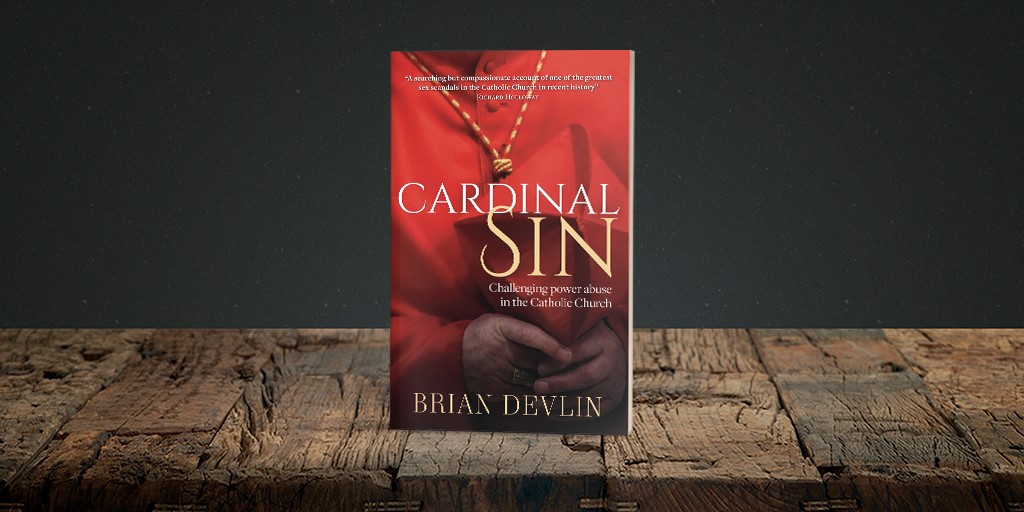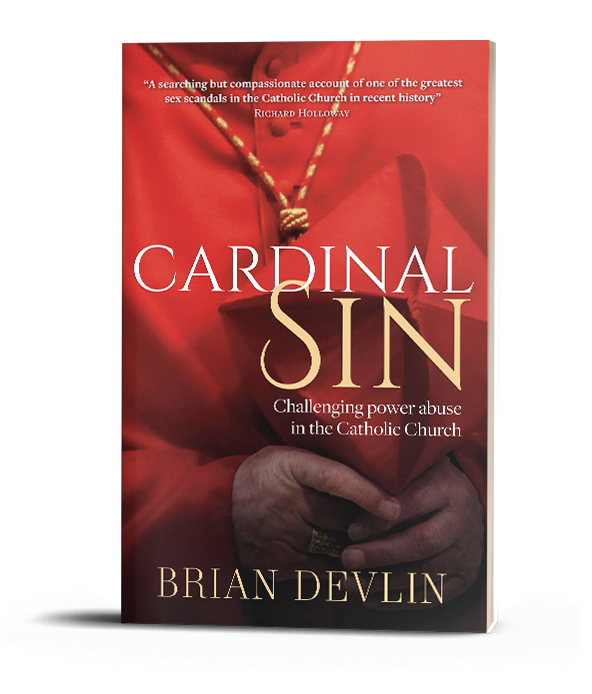Tested in the fire – the whistleblower in the case of disgraced Cardinal O’Brien tells his story
Brian Devlin | 25 August 2021
“My son, if you aspire to serve the Lord, prepare yourself for an ordeal.”
The quotation from Ecclesiasticus, which was read out at my ordination, has followed me my entire life. Its shadowy presence never leaves me. It never will. I know that now.
And I do. I do aspire to serve the Lord. I might not be very good at it at times – but if “serving the Lord” means living an authentic life and doing my very best then, Yes. That is what I try to do.
Being a whistleblower in the case of Cardinal Keith O’Brien was just such an ordeal. It’s not the only one I’ve had to face in my life. But it’s by far and away the most impactful. When I’d read of his excesses in the Press over the years I shook my head and pressed my fingernails into the palms of my hands. “If only they knew who he was,” I said to myself. When he ranted against gay marriage; when he linked women who’d had abortions to the Dunblane massacre … each time, I wanted to tell everyone what I knew to be true. He’s a fraud. A hypocrite.
But, aside from a few friends, I never thought I could tell anyone. Then, as if by chance, I found out that I was not the only one who knew this to be true. O’Brien was a predator. And I was not his only prey. Three other priests, and myself, an ex-priest, began to talk.
Being a whistleblower is a decisive act. Once you know something very serious indeed has happened you are faced with a number of options. We chose to exhaust every internal process that was made available to us. We were told to write our testimonies to Pope Francis’ ambassador to Britain, the apostolic nuncio, Antonio Mennini. That was hard. When words are put on paper they have a permanence. When the paper is put in the post to be read by someone so important you know that it won’t be long until something massive happens. And in a sense something massive did happen. There was silence. Nothing.
This is such a common experience for the victims of abuse. The silence is oppressive. Suffocating. And savage. Is this how we expect our Church to be? I didn’t. I don’t believe for a second that those in Rome who were calling the shots thought we would really go public with our allegations. But we had to. When eventually Archbishop Mennini did speak, it was to tell us that O’Brien was to go to the papal conclave which came following the resignation of Benedict in 2013 because “that will make it easier to arrange his retirement to be one of prayer and seclusion like the Pope”. I was staggered. The church authorities were prepared to let a cardinal with allegations of egregious sexual misconduct made by three serving priests and one former priest take part in the conclave that would elect the next Pope. (Even with my active imagination I never thought they’d pick O’Brien. But I did visit the Paddy Power website to see what his odds were.) You couldn’t make it up. But that’s what they decided to do.
We had had enough. We went public. Our story appeared in The Observer on 23 February 2013. It was the nuclear option, but it was a stark reminder that when it comes to challenging power abuse, bishops and cardinals must not be allowed to mark their own homework. Within a few days, it was announced that O’Brien’s previously submitted resignation as archbishop would take effect immediately, and that he would not be participating in the conclave after all.
But it’s only now that the inside story of what it was like to be a whistleblower in the case of a Cardinal is being told. In Cardinal Sin: Challenging power abuse in the Catholic Church I lay it all out. One of the drum beats that we heard when we were pursuing our “process” is that “only the Pope can deal with a Cardinal”. This is utterly contemptuous of any sense of justice: either for those raising the allegations or the alleged perpetrator. In Cardinal Sin I mention a Celtic word that’s frequently used in Scotland: “minding”. As in, “Who is minding the child?” “Who will mind the farm when I’m dead?” I believe there is a minding role for the laity generally in the Church, but certainly in the pursuit of due process for whistleblower victims.
The hierarchy have poisoned the well that Catholics drink from. They are not capable of providing this sort of cleansing, healing process that victims need. There are too many conflicts; too much self interest; too many secrets. They make it so bloody hard because they can. Laity, trained to deal with whistleblowing, knowledgeable about the trauma of abuse, courageous in the pursuit of justice must be given this minding responsibility.
Culture eats policy for breakfast. So alongside changes to practice must come changes in behaviour. Clericalism is the most strident enemy of Christ’s teachings. Yet it is infesting our Church. If we have learned anything from the O’Brien affair, and all the other scandals of clerical abuse whatever the rank, we must, as my ordination reading says, “prepare ourselves for an ordeal”. It seems that, at least in the Archdiocese of St Andrews and Edinburgh, that lessons, other than cosmetic ones, have not been learned. Clericalism is becoming marbled throughout.
Whistleblowing is exhausting. It is frightening. It is lonely. And it is necessary. In our Church it is blessed and it is from the Holy Spirit. I’m lucky I have friends and professional support to guide me. Many who want to whistleblow won’t have anything like that. That terrifies me.
My ordination reading went on to say: “Be sincere of heart, be steadfast, and do not be alarmed when disaster comes … Since gold is tested in the fire, and chosen men in the furnace of humiliation.”


